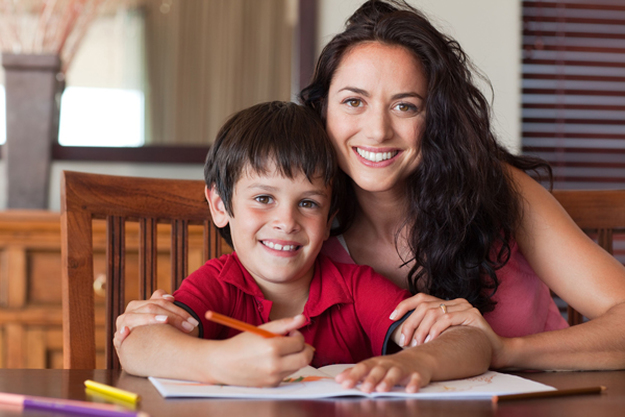How do you react if your child’s teacher/doctor tells you that your child is a genius? But
what if the teacher tells you that they have autism?
Though both may be true, some parents feel devastated when they receive this news.
However, changing your approach to the situation can strongly affect the way your
child copes and grows with autism and how you as a parent can proactively react to
harbor a happy childhood.
Without a doubt, your autistic child will be different from the other children. But, think
of it this way; what are you looking for in a romantic partner? What about from an
employee? Uniqueness. After all, this is what life is about: to be unique and happy, and
on that front parents can help their children tremendously if they encourage them to live
with, rather than try to battle with, this new friend: autism.
First, in order to accept the situation, you need to understand what the meanings of
Autism and ASD (Autism Spectrum Disorder) are. Pete Pallarés, psychologist and CEO
at Center for Social Dynamics is passionate about spreading the appropriate information
about these disorders and helping parents deal with them effectively.
“These terms belong to a group of disorders which appear to have their roots in very
early brain development”, says Pete.
From Pete’s experience having worked 15 years with autistic children, early
intervention is the most effective way to deal with autism. “All the time we receive
children with autism who could have easily come during infancy to start therapy, but
parents don’t realize the importance of early intervention, so they start much later. Had
we been able to help them even a few years prior, the results would have come much
faster.”
Between the ages of the 2 and 3 years, the most obvious signs and symptoms of autism
tend to emerge. “These disorders can be characterized, in varying degrees, by
difficulties in social interaction, verbal and nonverbal communication, and repetitive
behaviors”, explained Pete Pallarés.
All these symptoms can be signs for parents to notice if their child has autism and to see
a doctor as soon as they observe this behaviour. A proactive reaction will be the
difference in your child’s future and you, the parent’s attitude will be the distinction
between bad news or good news when a family learns about this new friend in your
child’s life.
Pete Pallarés, CEO and Founder at Center for Social Dynamics.
what if the teacher tells you that they have autism?
Though both may be true, some parents feel devastated when they receive this news.
However, changing your approach to the situation can strongly affect the way your
child copes and grows with autism and how you as a parent can proactively react to
harbor a happy childhood.
Without a doubt, your autistic child will be different from the other children. But, think
of it this way; what are you looking for in a romantic partner? What about from an
employee? Uniqueness. After all, this is what life is about: to be unique and happy, and
on that front parents can help their children tremendously if they encourage them to live
with, rather than try to battle with, this new friend: autism.
First, in order to accept the situation, you need to understand what the meanings of
Autism and ASD (Autism Spectrum Disorder) are. Pete Pallarés, psychologist and CEO
at Center for Social Dynamics is passionate about spreading the appropriate information
about these disorders and helping parents deal with them effectively.
“These terms belong to a group of disorders which appear to have their roots in very
early brain development”, says Pete.
From Pete’s experience having worked 15 years with autistic children, early
intervention is the most effective way to deal with autism. “All the time we receive
children with autism who could have easily come during infancy to start therapy, but
parents don’t realize the importance of early intervention, so they start much later. Had
we been able to help them even a few years prior, the results would have come much
faster.”
Between the ages of the 2 and 3 years, the most obvious signs and symptoms of autism
tend to emerge. “These disorders can be characterized, in varying degrees, by
difficulties in social interaction, verbal and nonverbal communication, and repetitive
behaviors”, explained Pete Pallarés.
All these symptoms can be signs for parents to notice if their child has autism and to see
a doctor as soon as they observe this behaviour. A proactive reaction will be the
difference in your child’s future and you, the parent’s attitude will be the distinction
between bad news or good news when a family learns about this new friend in your
child’s life.
Pete Pallarés, CEO and Founder at Center for Social Dynamics.

 RSS Feed
RSS Feed